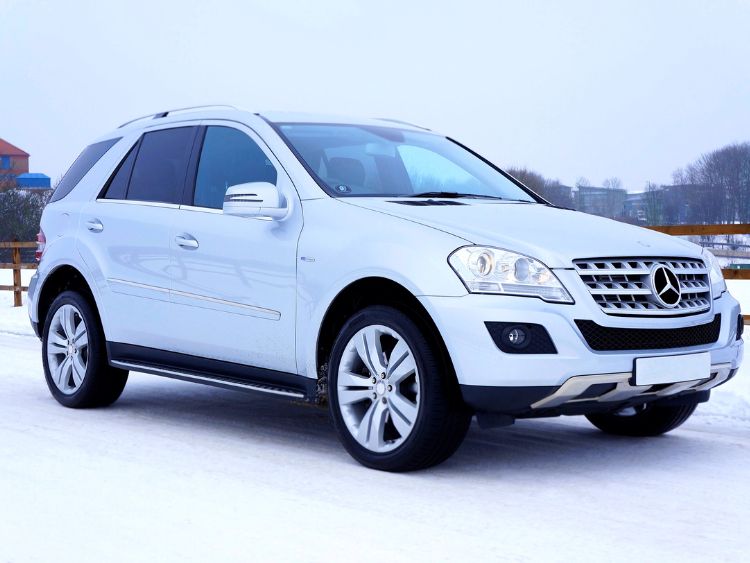Selecting the best SUV tires is essential for its performance, safety, and comfort—especially in unpredictable weather. Winter tires and all-season tires are two popular choices. Your driving experience may be greatly improved by being aware of the variations among different tire types and selecting the one that best meets your requirements. The comparison of winter and all-season SUV tires in this post will assist you in selecting the right option for your car.
Understanding Winter Tires
Winter tires, also known as snow tires, are specifically designed to perform in cold temperatures and harsh winter conditions. Here are the key features that set winter tires apart:
- Rubber Compound: To improve grip and traction on chilly terrain, winter tires employ a unique rubber compound that keeps its flexibility at low temperatures.
- Tread Design: To lessen the chance of hydroplaning, winter tires have a deeper, more aggressive tread pattern with bigger gaps to move snow and slush away from the tire.
- Siping: The tread blocks of winter tires are covered in a lot of tiny openings called sipes. More biting edges produced by these sipes improve traction on compacted snow and ice.
- Snowflake Symbol: Tires with a winter rating bear the “Three-Peak Mountain Snowflake” (3PMSF) insignia, signifying that they fulfill the necessary performance standards under extreme snowfall.
Understanding All-Season Tires
All-season tires are designed to provide balanced performance in a variety of weather conditions, from warm summers to mild winters. Here are the primary characteristics of all-season tires:
- Rubber Compound: Although it can lose some of its effectiveness in extremely cold temperatures, the rubber compound of all-season tires is designed to function well in a wide range of temperatures.
- Tread Design: All-season tires provide a moderate tread design that strikes a balance between light snow traction, wet traction, and dry traction. Compared to winter tires, the design usually has fewer and shallower grooves.
- Versatility: These passenger tires are suited for areas with moderate climates where harsh weather is uncommon since they are designed to provide a balance between summer and winter performance.
Performance Comparison
This section examines the differences in traction, handling, temperature range, durability, and overall performance between winter and all-season SUV tires.
Traction and Handling
Winter Tires: Because of their unique rubber compound and tread design, they provide superior traction in snow, ice, and freezing conditions. In winter conditions, they offer superior grip and handling, shortening stopping distances and enhancing overall control.
All-season Tires: Provide sufficient traction in mild winter weather and light snowfall. Even while they function rather well in a range of conditions, they fall short of winter tires’ traction in extremely cold or deep snow.
Sturdiness and Wear
Winter Tires: Because of their softer rubber formula, they tend to wear out more quickly when utilized on warm, dry roads. The winter is when they are most useful, and the off-season is when they should be stored.
All-season Tires: Designed for year-round use, they provide superior durability and resistance to wear under varied circumstances. When used properly, they usually last longer than winter tires.
Temperature Range
Winter Tires: Made to function best when the temperature drops below 45°F (7°C). Their rubber compound improves safety and grip in cold temperatures by remaining flexible.
All-season Tires: These tires function optimally in temperatures between roughly 20°F (-6°C) to 95°F (35°C). But in very cold weather, they become less effective because the rubber gets harder and loses traction.
Noise and Comfort
Winter Tires: Because of their aggressive tread patterns, these tires might be louder and less comfortable on dry pavement. Modern winter tires no longer have these problems, though, thanks to technological developments.
All-season Tires: Are a popular option for daily driving since they often offer a quieter and more pleasant ride on both dry and rainy terrain.
Cost Considerations
- Winter Tires initial cost can be higher, especially if you need an additional set of wheels for easy seasonal changes. However, their performance in winter conditions can justify the investment.
- All-Season Tires typically more cost-effective since they can be used year-round, eliminating the need for a second set of tires.
Long-Term Costs:
- Winter tires require seasonal changes, which might incur additional costs for mounting and balancing twice a year. Proper storage is also necessary to prolong their lifespan.
- All-Season tires seasonal changes are not needed, resulting in lower maintenance costs over time. They can provide good value for money if you live in a region with mild winters.
Driving Considerations
- Winter tires are necessary in areas with severe winters, a lot of snowfall, and icy roads. Winter tires are a safer option if you live somewhere where it frequently gets below freezing.
- All-Season tires fit for regions with moderate winters and sporadic light snowfall. They eliminate the need for seasonal adjustments and provide the convenience of year-round use.
Driving Habits
- Winter tires are ideal for drivers who frequently travel in severe winter conditions, such as mountain regions or rural areas with poorly maintained roads.
- All-Season tires are perfect for urban and suburban drivers who encounter a mix of weather conditions but don’t face extreme winter scenarios regularly.
Choosing Wisely
The following elements should be taken into account while choosing between winter and all-season SUV tires:
Climate and Weather Patterns: Evaluate how severe and frequent the winters are where you live.
Driving Needs: Consider the weather and routes you usually take. Do you mostly drive on well-kept city roads, or do you also drive on snowy, icy roads frequently?
Budget: Take into account each tire type’s initial cost as well as ongoing expenses.
Safety: Put safety and performance first, particularly if you drive in hazardous winter weather frequently.
Conclusion
Choosing between winter and all-season SUV tires ultimately depends on your specific needs, driving habits, and local climate. Winter tires offer unmatched performance in cold and snowy conditions, providing superior safety and control. On the other hand, all-season tires provide a convenient and cost-effective solution for regions with mild winters and varied weather conditions. By carefully considering these factors, you can make an informed decision that ensures optimal performance and safety for your SUV year-round.





